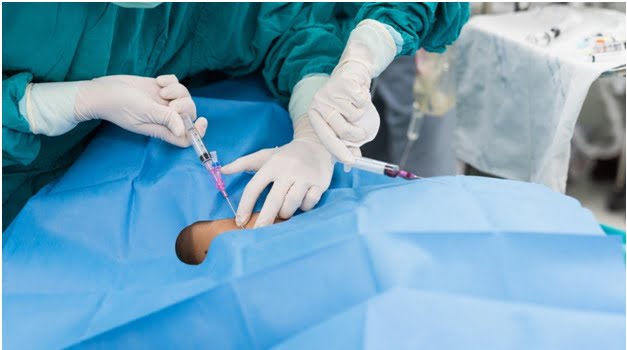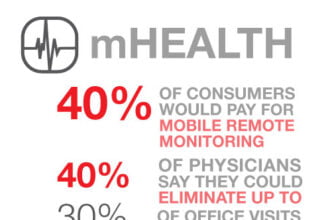EVLT (Endovenous Laser Therapy) and sclerotherapy are the two most popular types of varicose vein treatment performed in vein clinics. However, many potential patients, searching for answers online, seem to be more than a little confused on which procedure should be used for which types of varicose vein situations. The truth is that in many cases, either procedure could work in the right skilled hands, but in most cases, there are good reasons for choosing one procedure over the other. We’ll discuss some of the main reasons for choosing EVLT versus sclerotherapy below.
Both EVLT and sclerotherapy have the same goal by the end of the varicose vein treatment. They both go inside the varicose vein and “ablate” it from within, causing the vein to collapse and seal up, rendering it incapable of blood transport, and incapable of even holding blood. As the collapsed vein dissolves, the body carries it away, bit by bit, and actually recycles the reusable parts into other tissues, just like we recycle old soda cans that have been crushed into brand new aluminum objects! The human body is truly amazing in this way, but I digress! Once the varicose vein is sealed off, the body’s circulatory system finds detours around this sealed off vein and eventually a new permanent circulatory route is established through other healthier veins.
EVLT varicose vein treatment closes off the varicose vein by using the heat energy from a tiny laser on a thin cable that is injected into the varicose vein and then moved through that vein. Sclerotherapy varicose vein treatment, on the other hand, injects the faulty vein with a salty solution, called a sclerosant, to cause the vein to collapse and seal off. This sclerosant can be liquid or foam, depending on how big the treated varicose vein is. In EVLT, doppler venous ultrasound is usually used to get a continuous picture of the where the laser is located for accuracy in the procedure. Doppler venous ultrasound can also be helpful in sclerotherapy to visualize the extent that the sclerosant has infiltrated the vein to determine if more sclerosant needs to be injected.
Now, let’s compare and contrast when sclerotherapy and EVLT varicose vein treatment and show when each is the best procedure to choose. Sclerotherapy tends to be used on smaller veins, including larger spider veins (there are different kinds of lasers that are used on really small spider veins), except when they occur on the face, since the sclerosant can be dangerous near the eye socket. Keep in mind this is not always true but it is usually true. Sclerotherapy is a faster to perform and less expensive type of varicose vein treatment than EVLT so this factor may come into play too when deciding which procedure to use, especially in situations where insurance will not cover a procedure.
EVLT varicose vein treatment is usually used on medium to larger varicose veins, especially the small and greater saphenous veins and especially on the veins behind the knees. On the other hand, sclerotherapy is considered a less painful procedure than EVLT so if a doctor is dealing with a patient who has a very low pain threshold, this may be a consideration. If sclerotherapy is performed on a larger vein, the sclerosant chosen will likely be a foamed sclerosant, rather than a liquid sclerosant, to ensure the target varicose vein is fully filled during the procedure. However, even with a foamed sclerosant, it may take more than one sclerotherapy session to fully ablate a larger vein, whereas with EVLT, the doctor can usually ablate a larger vein in one session.
Another situation where sclerotherapy may actually be preferred over EVLT on medium to large veins is when the vein is not straight and or has branches that need to be ablated during the same procedure. It can be difficult to move the laser through crooked vein and or into the branches off a straight vein. However, a foamed sclerosant can fill this space relatively easily. In some cases, a vein doctor may decide to used a combination of both sclerotherapy and EVLT in the same procedure if he or she is dealing with a vein that is straight part of the way and crooked, or branched, in another part.
Another factor may come into play on dark skinned people. EVLT varicose vein treatment does run a higher risk of causing permanent discoloration of the skin on dark skin versus light skin that does sclerotherapy treatment. This is due to the type of laser energy used to ablate the vein. Thus, this higher risk should be disclosed to the patient and this may affect his or her decision about which procedure to get done. If this is the case, the location of the varicose vein to be treated may also be important and whether or not the patient will have this area exposed very often in public.
When selecting a vein clinic, it is important to choose one where the vein doctors are equally skilled at both EVLT and sclerotherapy. This way, you know for sure they are recommending the best type of varicose vein treatment for your particular case, rather than the procedure they happen to be most comfortable with performing. This is the case at Metro Vein Centers, one of the leading vein clinics in the United States. If you would like an honest and free evaluation on which type of varicose vein treatment would be best for your specific case, you can give Metro Vein Centers a call and they’ll get a time set up for you to go see them.









